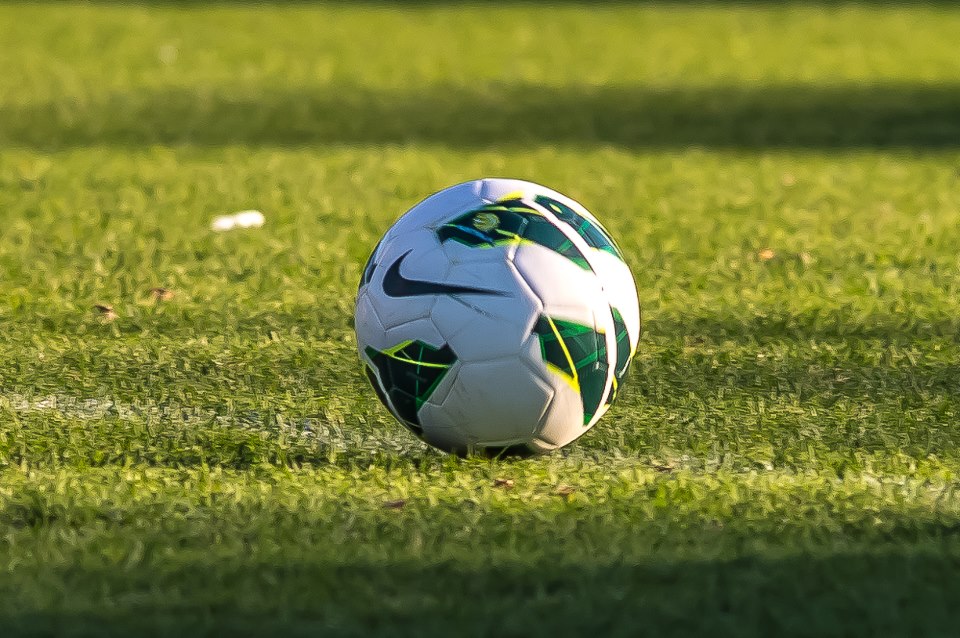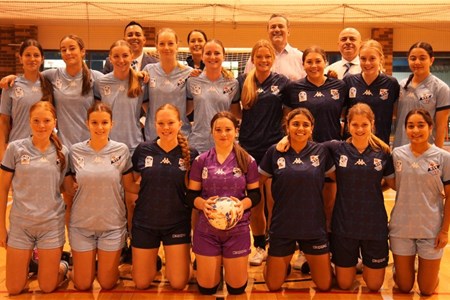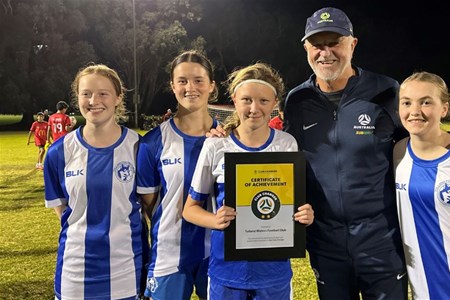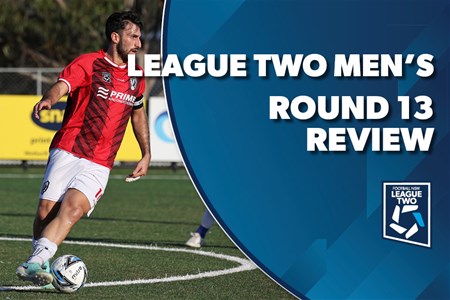Vale Leo Baumgartner


The Australian football world has been saddened to hear that Australian Football Legend Leo Baumgartner passed away after a long illness.
On behalf of the Australian football community, FFA Chief Executive Officer David Gallop paid tribute to Baumgartner and his legacy for football in Australia
“Leo Baumgartner was a superb ball player who was a star in his native Austria before moving to Australia.
“He is credited with bringing the modern passing game to Australia and was hugely influential as a coach and mentor.
“Our deepest condolences go out to the Baumgartner Family at this time. Leo will be sadly missed by all,” concluded Gallop.
Born in Vienna in 1932, he had to flee the city during the Second World War with his mother when his house was bombed. He later returned and after playing with local clubs joined FK Rapid where he quickly showed the talent that had him selected for the national Under-18 team at the age of 16. After two seasons at FC Kapfenberg he was invited to join FK Austria the glamour team of Vienna. He went on several international tours with his new club in Europe, North Africa and South America, so by the time he came to Australia with them in 1957 he was a regular first team star and had played in a B international for Austria. The Sydney entrepreneur Max Gold had brought FK Rapid to Australia in 1956 and the following year he arranged the Austria tour. After a first up defeat against Australia in Newcastle, Baumgartner and his team hit their straps and only lost one more game on tour to the Hungarian side Ferenvaros which was on tour at the same time. Nine of its eleven games produced 51 goals for and only 23 against. Both defeats were reversed in subsequent games, with Baumgartner scoring a hat-trick against Australia and a goal in the three-one win over Ferencvaros. It was reported at the time that the club lost £5,000 on the tour.
Baumgartner and Karol Jaros were attracted by their Australian experience and the following year the masseur of FK Austria got in touch with his Czech contacts at Prague in Sydney. Things moved quickly and both players arrived to a massive welcome from both club and league officials. At that time the newly formed Federation of New South Wales Soccer Clubs was in dispute with the Amateur Association and the capture of these and other foreign stars without paying transfer fees was to result in Australia’s suspension from FIFA membership.
Initially Prague struggled to incorporate the new players but finished fourth in the league and hence in the play-offs for the premiership. Auburn beat Prague in the first semi-final and went on to take the title. In 1959 however, Baumgartner led a very powerful Prague team to victory in the Ampol Cup at the start of the season, then with the addition of three more players from FK Austria, Walter Tamandl, Andrea Shagi and Toni Schwarz, went on to win the league and premiership. Ron Lord was the keeper and other players included Les Scheinflug, Ken Hiron, Kevin O’Neil and Stewart Sherwin. The addition of the dynamic Herbert Ninaus, another Austrian international, and his brother Erwin, completed the stellar line-up. Baumgartner converted a penalty kick to win the grand final against Apia by three goals to two in pouring rain at Henson Park in Marrickville in front of 13,000 soaked fans.
Baumgartner also played for the Federation’s representative team in 1959 against the visiting Costa Ricans from Deportivo Saprissa. He captained the side and led it to three victories. At the same time Heart of Midlothian from Scotland were touring under the auspices of the Australian Soccer Association but the war between the Association and the Federation kept most of the latter’s stars, including Baumgartner, from playing against the Scots.
Changes at the club and perhaps Baumgartner’s own sense of his worth led to his leaving Prague in 1960 and joining Canterbury where ‘Uncle’ Joe Vlasits was coaching a bunch of extraordinary Australian kids, including the Warren brothers, Johnny and Geoff, John Watkiss, Brian Smith and Ron Corry in goals. The addition of Baumgartner was the catalyst for an incredible season, in which Canterbury finished third in the league and got through to the grand final where it trounced Prague by five goals to two. All five forwards, including Baumgartner, scored for the winner. By now he was the undisputed star of the local game, nicknamed ‘Sabrina’ after a voluptuous personality of the 1950s. He was named ‘Mr Soccer 1960’.
Though he was a soccer star, Baumgartner was only a part-timer and managed a canteen at a migrant hostel on the South Coast. In 1961 he transferred to South Coast United, but after only a few games there he was head-hunted by Apia and helped the club finish 6th in the league. In 1962 Baumgartner was appointed player-coach and he also coached the Federation representative team and the Croatian team in the second division! Never far from controversy Baumgartner was banned from playing for the Federation after he and Jaros obeyed an order from the club not to coach or play with the representative team. Apia reached the grand final in 1963 but was surprisingly beaten by South Coast led by Jim Kelly. Apia also lost to Slavia in the Australia Cup and Baumgartner was hauled before the Committee to explain the defeats. Consequently he left to join Hakoah and played his first representative game for the Australian national team in 1964 against Everton.
Baumgartner continued to coach with success after his playing career was over. In 1970 he won the grand final with Yugal in another mud bath, knocking out Frank Arok’s St George Budapest, the favourite. He also coached Croatia, Marconi and the New South Wales State team in the 1970s. Later he was director of coaching at Sydney United at the time when Mark Bosnich, Zeljko Kalac and Tony Popovic among others were coming through the youth and senior ranks. Talking to Johnny Warren in 2008 he said he was still involved with the development of the game on the New South Wales north coast. Since then he has run coaching courses for coaches, acted a regional director of coaching, won a premiership for Coffs Tigers and had just taken on another club, Sawtell which was in the doldrums. Even at 79, he was still seeking to improve teams and players.
In the interview with Johnny Warren, he stressed that the game he brought to Australia was the modern passing game with the ball kept on the deck as much as possible. He adhered to that philosophy to his final day and he had been a key figure in the transformation of football in Australia.
Leo is survived by wife, Helen, daughter Sonja and son Rick.
The service will be held on Friday 22nd November at 11:30 am at the Hogbin Drive Crematorium Stadium Drive, Coffs Harbour.
Football NSW would like to pass its deepest condolences to the Baumgartner family.


